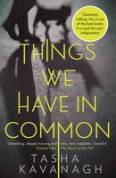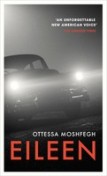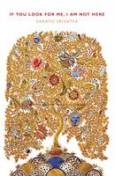Many of you will know that I have a very good friend in Eric of the marvellous book blog Lonesome Reader, which you should all be dropping in on regularly if you aren’t already. His is an opinion that I value highly, though don’t always agree with which makes for great bookish chatter when we catch up, bookish bickering some might say. Ha. One of Eric’s absolute books of the year last year from the moment he read it was Gavin McCrea’s Mrs Engels which, I was kindly left a signed copy of on one of my trips to London when I stayed in his book nook. So naturally I read it very soon after, pondering if it would be a book we agreed on or a book we would bicker over? Well…

Scribe Publications, hardback, 2015, fiction, 352 pages, kindly put in my hands by someone whose book taste I (still) trust implicitly
No one understands men better than the women they don’t marry, and my own opinion – beknown only to God – is that the difference between one man and another doesn’t amount to much.
So opens Mrs Engels and instantly we are thrown into the world of Lizzie Burns as she leaves the workhouses of the north for a life of polar contrast in London as the mistress of social scientist and philosopher Frederick Engels just as his plans to form a revolution with his friend Karl Marx start to come into action. From the very start of the novel we are instantly asked to question why it is that Lizzie has ended up with Frederick is love a chemical thing or a practical one? Is it love from both parties, pity from one of them, a hope of some kind of security or future for the other or are the lines in love a blurry concoction of it all?
If you are worried this might sound a bit dry, or indeed you might need to have read everything about The Communist Manifesto fear not (funnily enough it has never been bedtime reading of mine either) because actually Engels and Marx are really supporting characters. This is the story about Lizzie and of the plight of many people, particularly women but also men as we see as we read on, who have become forgotten voices in history, Lizzie is a voice and a force to be reckoned with and indeed a vessel for McCrea to give an account of many who could not speak up or write about their experiences. It is a book looking unflinchingly at the classes of the times from a factual voice who got lucky in many ways, not so in others, rather than an idealistic one.
I go hard at it – my sleeves rolled, my face lathered – and I don’t let off till, out the side of my eye, I light on a crowd of four women coming up the road from the Hill side. They, in return, catch sight of me when they’re a few doors away. By my own deeper wisdom, I know they are headed in my direction. I put my attending back on my cleaning, but I’m aware of myself now and don’t feel inside the task.
They come to stand in a line over me. I twist my neck to look up at them.
‘Might we see the lady of the house?’ says the one in the high boned collar.
I stand. Brush the hair off my brow. Flatten my pinny. ‘Come on, Lizzie,’ I says to myself, ‘don’t be so easy to the blush.’
When it dawns on one, it passes through the others like electricity. ‘Oh!’ – they clutch their chests in the spot where the air has been knocked out – ‘How novel!’
For me the narrative of Lizzie Burns is the constant highlight of Mrs Engels and full credit needs to go to Gavin McCrea for this creation, as should the fact that all the research he clearly did into an unknown woman is never showy or forced. Huge round of applause from me. If this is ever to be adapted then I am sure there will be many actresses that will be vying for this role because Lizzie is not a woman or character that you are ever going to forget. Yet, for me, the strength of Lizzie in some ways became somewhat detrimental to the rest of the novel. She appears so completely and utterly that the rest of the characters and indeed some of the settings and atmospheres, though when we go back to the times working in the workhouse with her sister, often I felt paled by comparison. It seems quite a backward compliment that, but it is a compliment none the less in an odd way.
What I felt I was doing in the end was reading the novel for Lizzie’s voice and not for the actual story. This means of course we get the voice of the unheard through her, yet because I wasn’t really bothered about anything going on around her in London, much more interested in the Manchester parts of the book, I think it lessened the effect of their plight and for me was much more about how poor Lizzie got on as a mistress than where she had come from. From me it became an odd dichotomy rather than a powerful and moving sum of all its parts, if that makes sense?
The revolution has happened. In my parlour.
Chairs overturned. Empty bottles on the chimneypiece. Half full glasses among the plants in the pots. Fag-ends in the necks of the lamps. The clod from someone’s pipe stuck onto Jenny’s horse painting, right where its bit ought to be. And on the sofa, head to foot and snoring, their clothes screwed tight about them, morning wood standing up in their breeches: men I don’t recognise.
Another fancy evening for the comrades. Another night spent with cotton in my ears and a chair against the door. And now another day spent with yesterday’s smoke clogging up my lungs.
I have talked before about how whatever a reader has read before will of course affect and inform everything they read after, here is a prime example. and here was where a major issue for me lay with Mrs Engels, through no fault of its own. You see if I had not read that many historical novels of this ilk before I would probably think it was more than just a corking narrative. Because I have read the likes of Jane Harris, who if you haven’t read go and get both The Observations and Gillespie and I right now this instant, not only have I seen this sparky, saucy, snarky, northern charming and compelling voice before, I have seen it done with everything else done as vividly and strongly; all the secondary characters, the streets and houses, the atmospheres and smells in full technicolour, even if in smoggy tones.
I thought that Mrs Engels was a novel filled and brought to live with a passionate heart; it just lacked the full body for me personally. As I say though this is through no fault of its own much more mine for the books that I have read before it, it is a strong debut and I am sure will find a legion of loving readers as it deserves. I will be intrigued to see what Gavin McCrea writes next as I am sure it will have another narrative force to be reckoned with.
Head here to read Eric’s marvellous review. If you have read Mrs Engels I would love to know what you made of it. I would also love to hear of any other historical novels which have a real narrative propulsion as I sometimes find them a little too dry and research heavy and need ‘a voice’ to get me through them, that is why you don’t see the genre reviewed on here as much as I would like.
























































